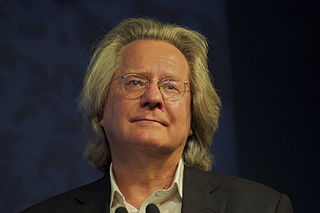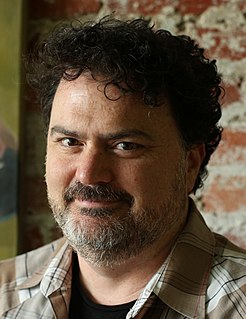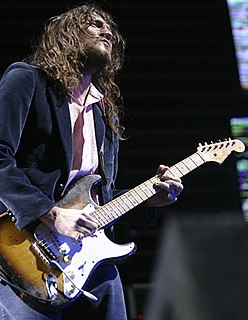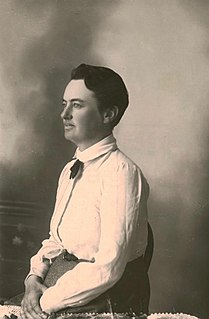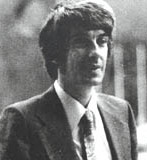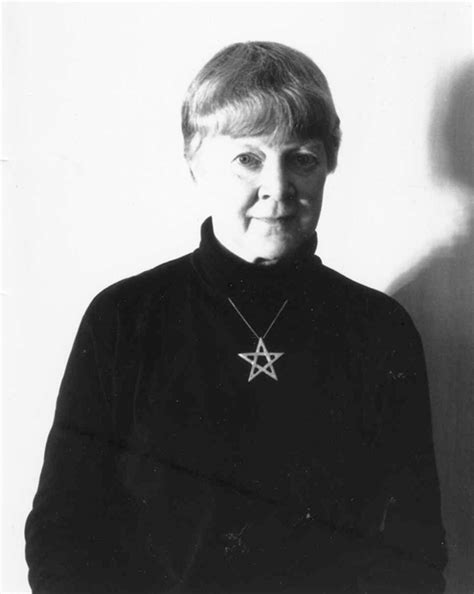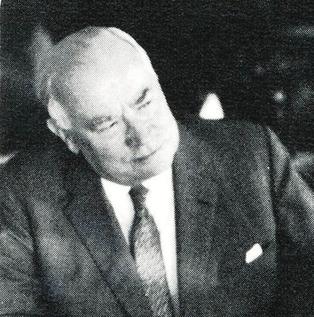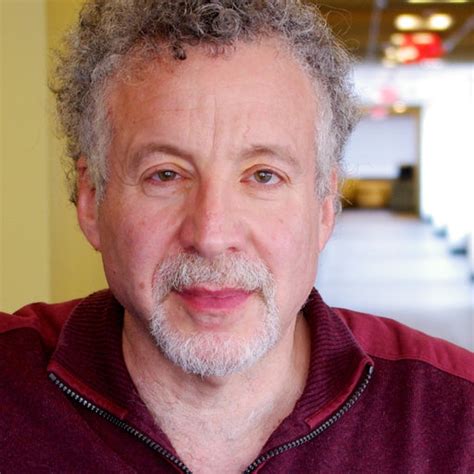Top 372 Medieval Quotes & Sayings - Page 6
Explore popular Medieval quotes.
Last updated on April 19, 2025.
To accept the story of the Arab destruction of the library of Alexandria, one must explain how it is that so dramatic an event was unmentioned and unnoticed not only in the rich historical literature of medieval Islam, but even in the literatures of the Coptic and other Christian churches, of the Byzantines, of the Jews, or anyone else who might have thought the destruction of a great library worthy of comment. That the story still survives, and is repeated, despite all these objections, is testimony to the enduring power of a myth.
The human species does not necessarily move in stages from progress to progress ... history and civilization do not advance in tandem. From the stagnation of Medieval Europe to the decline and chaos in recent times on the mainland of Asia and to the catastrophes of two world wars in the twentieth century, the methods of killing people became increasingly sophisticated. Scientific and technological progress certainly does not imply that humankind as a result becomes more civilized.
Science seeks the truth. And it does not discriminate. For better or worse it finds things out. Science is humble. It knows what it knows and it knows what it doesn’t know. It bases its conclusions and beliefs on hard evidence -- evidence that is constantly updated and upgraded. It doesn’t get offended when new facts come along. It embraces the body of knowledge. It doesn’t hold on to medieval practices because they are tradition.
In medieval times, the Church used to sell 'indulgences' for money. This amounted to paying for some number of days' remission from purgatory, and the Church literally (and with breathtaking presumption) issued signed certificates specifying the number of days off that had been purchased. . . . And of all its money-making rip-offs, the selling of indulgences must surely rank among the greatest con tricks in history. . . .
Medieval England was a great military power with a sophisticated machinery of government, but her naval administration, at best improvised and for long periods missing altogether, pointed to a grave weakness: the lack of any reliable means of putting a force of warships at the disposal of the crown. Only Richard I and Henry V of all the kings of England can be said to have understood the problem and attempted to remedy it. It is no coincidence that they wer by far the most successful in war.
Television is the Antichrist, and I can assure you after only three or four generations, people will no longer even know how to fart on their own and humans will return to medieval savagery and to the general state of imbecility that slugs overcame back in the Pleistocene era. Our world will not die as a result of the bomb...it will die of laughter, of banality, of making a joke of everything and a lousy joke at that.
[E]ncouraging the Muslim world, and particularly the Arab Muslim world, which is the heart of the global terrorist threat - to adopt democratic ways and to shine the light of liberty into its culture of medieval darkness is a pragmatic necessity for the future security of the civilized world. That is the reality behind the President's address. Only people in serious denial can be blind to this fact. Only liberals.
Contemporary fantasists all bow politely to Lord Tennyson and Papa Tolkien, then step around them to go back to the original texts for inspiration--and there are a lot of those texts. We have King Arthur and his gang in English; we've got Siegfried and Brunhild in German; Charlemagne and Roland in French; El Cid in Spanish; Sigurd the Volsung in Icelandic; and assorted 'myghtiest Knights on lyfe' in a half-dozen other cultures. Without shame, we pillage medieval romance for all we're worth.
Ruling is hard. This was maybe my answer to Tolkien, whom, as much as I admire him, I do quibble with. Lord of the Rings had a very medieval philosophy: that if the king was a good man, the land would prosper. We look at real history and it's not that simple... Real-life kings had real-life problems to deal with... My people who are trying to rule don't have an easy time of it. Just having good intentions doesn't make you a wise king.
The medieval doctors of divinity who did not pretend to settle how many angels could dance on the point of a needle cut a very poor figure as far as romantic credulity is concerned beside the modern physicists who have settled to the billionth of a millimetre every movement and position in the dance of the electrons. Not for worlds would I question the precise accuracy of these calculations or the existence of electrons (whatever they may be). The fate of Joan is a warning to me against such heresy.
I believe very much in a dialogue between buildings - I believe it's always been there. I think buildings have different identities and live very well next to each other. We always have the shock of the new, and that's fine. The renaissance style is totally different from the medieval, and they have a dialogue across time.
The war in Afghanistan was fought for feminist reasons, and the Marines were really on this feminist mission. But today, all the women in all these countries have been driven back into medieval situations. Women who were liberated, women who were doctors and lawyers and poets and writers and - you know, pushed back into this Shia set against Sunnis. The U.S. is supporting al-Qaeda militias all over this region and pretending that it's fighting Islam. So we are in a situation that is psychopathic.
I think it modern society as a whole, but definitively in Brazil, spaces are so well divided and there are so many barriers, and so many divisions, so many lines and so many borderlines, basically telling you that you should be here but not here. This is my space and this is your space, and this is expressed very dramatically in architecture, we have a very kind of aggressive, almost medieval concept for architecture, which is basically keeping people out. So you get high walls, fences, and electric fences, and divisions like that.
Nowadays, by contrast, Christianity specialises in soft-focus mood music; its threats of hell, its demand for poverty and chastity, its doctrine that only the few will be saved and the many damned, have been shed, replaced by strummed guitars and saccharine smiles. It has reinvented itself so often, and with such breathtaking hypocrisy, in the interests of retaining its hold on the gullible, that a medieval monk who woke today, like Woody Allen's Sleeper, would not be able to recognise the faith that bears the same name as his own.
When they're shooting, when they're chopping off the heads of our people and other people, when they are chopping off the heads of people because they happen to be a Christian in the Middle East, when ISIS is doing things that nobody has ever heard of since medieval times, would I feel strongly about waterboarding? As far as I'm concerned, we have to fight fire with fire.
While I was drawn to the Renaissance, my first (unpublished) novels took place in modern times. When the subject of alchemy started creeping into my stories, an astute mentor observed that the bits about alchemy might fit better in another time frame. When I finally decided to weave the pieces about the medieval science into historical settings, a successful novel began to emerge. (And I dusted off that art history book, and put it to use once again.)
The American Heritage Dictionary defines crucible as "a place, time, or situation characterized by the confluence of powerful intellectual, social, economic, or political forces; a severe test of patience or belief; a vessel for melting material at high temperatures." A crucible was the vessel in which medieval alchemists attempted to turn base metals into gold. That the alchemists inevitably failed in their audacious attempts doesn't denigrate the power of the crucible as a metaphor for the circumstances that cause an individual to be utterly transformed.
In all times and in all places--in Constantinople, northwestern Zambia, Victorian England, Sparta, Arabia, . . . medieval France,Babylonia, . . . Carthage, Mahenjo-Daro, Patagonia, Kyushu, . . . Dresden--the time span between childhood and adulthood, however fleeting or prolonged, has been associated with the acquisition of virtue as it is differently defined in each society. A child may be good and morally obedient, but only in the process of arriving at womanhood or manhood does a human being become capable of virtue--that is, the qualities of mind and body that realize society's ideals.
I've always seen this overlap between medieval warfare and heavy metal. You see heavy metal singers and they'll have like a brace around their arm and they'll be singing about Orcs. So let's just make a world where that all happens. That all gets put together, the heavy metal, and the rock, and the battling, actually does happen. Let's not flirt around with this let's just do it.
I had in mind going worse than waterboarding. It's enough. We have right now a country that's under siege. It's under siege from a people, from - we're like living in medieval times. If I have it to do and if it's up to me, I would absolutely bring back waterboarding. And if it's going to be tougher than waterboarding, I would bring that back, too.
If you have an area where high-income receivers concentrate, you have a higher fiscal capacity. That fiscal capacity is a valuable resource and will create rent-seeking. People will trying to get that resource one way or the other, including immigration. It is very much like the medieval peasants putting their sheep on the commons pasture. It is better than the open range, and if you let them have open access they will, in fact, put too many sheep on the pasture and waste the value that the pasture has.
Though I like the various forms of football in the world, I don't think they begin to compare with these two great Anglo-Saxon ball games for sophisticated elegance and symbolism. Baseball and cricket are beautiful and highly stylized medieval war substitutes, chess made flesh, a mixture of proud chivalry and base - in both senses - greed. With football we are back to the monotonous clashing armor of the brontosaurus.
Now, as at the beginning of the 19th century, there is a certain discovery of Eckhart and related figures. There are questions as to how far our Eckhart accords with the real medieval teacher of that name, but there are certainly images in his work that help us work our way past several of the aporia with which we're confronted in our attempts to think about God.
Moral theory develops from the divine command theory of medieval Christian philosophy, mixed up with a bit of ancient pagan virtue theory, to the purely secular moral sentiment and interpersonal reaction theories of Smith and Hume, to Kant's attempt to restore command theory but with something supersensible in the individual rather than God as the source of authority.
Why, when the economist gives advice to his society, is he so often cooly ignored? He never ceases to preach free trade, and protectionism is growing in the United States. He deplores the perverse effects of minimum wage laws, and the legal minimum is regularly raised each 3 or 5 years. He brands usury laws as a medieval superstition, but no state hurries to repeal its law.
The idea that we would raise billions of sentient animals, treat them horribly, pollute our waterways with their waste, compromise the effectiveness of our antibiotics so that they grow faster, and then slaughter them with little regard to their suffering so that we can feed off their corpses, will seem to most people unthinkably cruel and barbarous - sort of in the way that we think of medieval punishments, or Europeans today think of the death penalty.
Enclosure, upon its completion, was the record which represented the achievement of all the musical goals I had been aiming at for the previous 5 years. It was recorded simultaneously with Black Knights' Medieval Chamber, and as different as the two albums appear to be, they represent one investigative creative thought process. What I learned from one fed directly into the other. Enclosure is presently my last word on the musical statement which began with PBX.
In the Middle Ages, the troubadour poets invented the concept of courtly love--a fantasy love, a noble passion, which was also extra-marital and thus inevitably thwarted, illicit, adulterous. One of the medieval terms for it was amour honestus (honest love). I've always wondered why this passionate ideal--masochistic, spiritual-travelled with such wildfire throughout Europe. My poem, a ghazal, takes up the subject.
Anyone who has studied the history of technology knows that technological change is always a Faustian bargain: Technology giveth and technology taketh away, and not always in equal measure. A new technology sometimes creates more than it destroys. Sometimes, it destroys more than it creates. But it is never one-sided. The invention of the printing press is an excellent example. Printing fostered the modern idea of individuality but it destroyed the medieval sense of community and social integration.
Now the Thanksgiving meal is just so unnecessarily difficult. I mean even mashed potatoes - it's like the most difficult kind of, you know, medieval idea. All right, instead of just cooking them, why don't you spend, like, eight hours peeling them and then we'll have to mash them up. It feels like prison labor, really.
Both the Moral Majority, who are recycling medieval language to explain AIDS, and those ultra-leftists who attribute AIDS to some sort of conspiracy, have a clearly political analysis of the epidemic. But even if one attributes its cause to a microorganism rather than the wrath of God, or the workings of the CIA, it is clear that the way in which AIDS has been perceived, conceptualized, imagined, researched and financed makes this the most political of diseases.
If you think about Don Quixote, Don Quixote is this guy who wants to live as if he was in a medieval chivalric romance, when actually he lives in sixteenth-century Spain, which is already going through secularization, industrialization, modernization. He goes out to kill a giant, and instead he collides with this huge windmill and injures himself and also damages the windmill. I think that's a metaphor for the collisions we all have over time, as our ideas of ourselves get out of synch with the historical moment.
My hope is that 'The New World Haggadah' will open a new world for readers who will see our heritage through a multilingual prism. I wanted to feature medieval and renaissance authors, resistance in World War II, crypto-Jews and activists during the Dirty War in Latin America, songs of protest, and songs of hope.
Adolescence has been recognised as a stage of human development since medieval times--long, long before the industrial revolution--and, as it is now, has long been seen as a phase which centers on the fusion of sexual and social maturity. Indeed, adolescence as a concept has as long a history as that of puberty, which is sometimes considered more concrete, and hence much easier to name and to recognize.
In Technologized Desire, the cultural pathologies that mark the panic ecstasy and terminal doom of the posthuman condition are powerfully rehearsed in the language of science fiction. Here, images of prosthetic subjects, zombies, cut-ups and armies of the medieval dead actually slip off the pages of literature to become the terminal hauntology of these technologized times. Technologized Desire is nothing less than a brilliant data screen of future memories. Read it well: it's a survival guide for bodies flatlined by the speed of accelerating technology.
The processes of secularization that followed in the wake of the Reformation continue to work themselves out in complicated ways, not only in Europe but also in North America. To make a very long and complex story short, the success of the Reformation combined with the persistence and renewal of Roman Catholicism in the 16th and 17th centuries made Christianity into an enduring, disruptive problem in new ways, layered on top of problems that already affected late medieval Christianity.
The worst thing that happens to you at college if you fail to get out of bed in time is that you will miss two hours of someone reading scintillating anecdotes about Medieval Ireland. The worst thing that happens to you in life if you fail to get out of bed in time is that you might lose your job as a first responder.
The fellows who amuze me are the Albanians. An Albanian on the mash is almost exactly like the medieval swells of the Italian frescoes & the first ones we met quite startled us. They wear the tight-fitting trunk hose made of woolen stuff hooked up the back of the leg. It is white with long black stripes of embroidery down the leg & at the top in front the shirt is pulled through slashes. They are long slim chaps with dandy little moustaches & are most theatrical in effect.
I think present-day reason is an analogue of the flat earth of the medieval period. If you go too far beyond it you're presumed to fall off, into insanity. And people are very much afraid of that. I think this fear of insanity is comparable to the fear people once had of falling off the edge of the world. Or the fear of heretics. There's a very close analogue there.
I don't know of a single instance of these Arab freedom fighters holding up pictures of bin Laden. I know many instances of them displaying American flags in Benghazi or painting 'Facebook' on their foreheads in Cairo. The idea of freedom . . . is absolutely contradictory to what bin Laden stood for, which was . . . taking Muslims back to some medieval theocracy and encouraging people to die not for freedom but to go to paradise and to kill innocent people along the way. The contrast is really striking.
Besides, I'd seen a really nice pair of shoes yesterday in the mall and I wanted them for my own. I can't describe the feeling of immediate familiarity that rushed between us. The moment I clapped eyes on them I felt like I already owned them. I could only suppose that we were together in a former life. That they were my shoes when I was a serving maid in medieval Britain or when I was a princess in ancient Egypt. Or perhaps they were the princess and I was the shoes. Who's to know? Either way I knew that we were meant to be together.
Why do so many young people literally die to belong to fraternities, sororities, and other college social organizations? The answer is complicated, but here is a starting point:
Ever since the medieval universities were founded, young people have done whatever it takes to gain acceptance, to break with their past lives, to achieve a sense of power, to carve out a society of their own that isn't quite what their tutors and teachers had in mind. In the United States, hazing and drinking have been endemic since colonial days.
Humanity today is like a waking dreamer, caught between the fantasies of sleep and the chaos of the real world. The mind seeks but cannot find the precise place and hour. We have created a Star Wars civilization, with Stone Age emotions, medieval institutions, and godlike technology. We thrash about. We are terribly confused by the mere fact of our existence, and a danger to ourselves and to the rest of life.
The 'medical examination' to which abductees are said to be subjected, often accompanied by sadistic sexual manipulation, is reminiscient of the medieval tales of encounters with demons. It makes no sense in a sophisticated or technical framework: any intelligent being equipped with the scientific marvels that UFOs possess would be in a position to achieve any of these alleged scientific objectives in a shorter time and with fewer risks.
I went and looked at one of these great cathedrals one day, and I was blown away by it. From there I became interested in how cathedrals were built, and from there I became interested in the society that built the medieval cathedral. It occurred to me at some point that the story of the building of a cathedral could be a great popular novel.
...the history of early-medieval Arabia is nearly all legend. Like Buddha, Confucius, Jesus, and other founders of patriarchal religions, Mohammed lacks real verification. There is no reliable information about his life or teachings. Most stories about him are as apocryphal as the story that his coffin hangs forever in mid-air "between heaven and earth," like the bodies of ancient sacred kings.
America did not need to be discovered because quite simply America had the American-Indians. There were whole groups of people that already lived there including very developed societies such as the Incas, the Aztecs, and the Mayans. But then came the European vision that saw the conquest as a source of advanced growth away from medieval Europe. The new revolutionary bourgeois trend formed a new perspective on what was democracy that they saw as an improvement to the democracy of ancient Greece.
Leonardo da Vinci did not take received wisdom - whether from ancient classical thinkers or medieval scholars or from the Bible - without questioning it. And this was the beginning of the scientific method. This is another lesson for our time: that when we have evidence that contradicts a certain belief, we should be willing to change it. I think this made Leonardo, in some ways, a person who better understood the beauty of God's creation than a person who just takes all received wisdom from the Bible on faith.
September 11 was a day of de-Enlightenment. Politics stood revealed as a veritable Walpurgis Night of the irrational. And such old, old stuff. The conflicts we now face or fear involve opposed geographical arenas, but also opposed centuries or even millennia. It is a landscape of ferocious anachronisms: nuclear jihad in the Indian subcontinent; the medieval agonism of Islam; the Bronze Age blunderings of the Middle East.
During the shooting of a scene the director’s eye has to catch even the minutest detail. But this does not mean glaring concentratedly at the set. While the cameras are rolling, I rarely look directly at the actors, but focus my gaze somewhere else. By doing this I sense instantly when something isn’t right. Watching something does not mean fixing your gaze on it, but being aware of it in a natural way. I believe this is what the medieval Noh playwright and theorist Zeami meant by ‘watching with a detached gaze.’
The civilized people of today look back with horror at their medieval ancestors who wantonly destroyed great works of art or sat slothfully by while they destroyed. We have passed this stage.... Here in the U.S. we turn our rivers and streams into sewers and dumping grounds, we pollute the air, we destroy our forests and exterminate fishes, birds and mammals - not to speak of vulgarizing charming landscapes with hideous advertisements. But at best it looks as if our people were awakening.
In medieval times the habit arose of expressing a man's wealth, no longer in terms of the amount of land in his estate, but of the amount of pepper in his pantry. One way of saying that a man was poor was to say that he lacked pepper. The wealthy lacked pepper. The wealthy kept large stores of pepper in their houses, and let it be known that it was there: it was a guarantee of solvency.
The whole thing that Dante [Alighieri] did was summed up in the medieval world. It's like St. Thomas Aquinas, the Summa Theologica. He didn't invent it, he just put it all in one package. You get twelve fat books there sitting in any library. Whereas... I think if Joshi thinks [H.P.] Lovecraft was doing anything like that, just throwing together all this stuff to form a kind of anti-mythology, that's where I would disagree with him.
Now the work of art also represents a state of final equilibrium, of accomplished order and maximum relative entropy, and there are those who resent it. But art is not meant to stop the stream of life. Within a narrow span of duration and space the work of art concentrates a view of the human condition; and sometimes it marks the steps of progression, just as a man climbing the dark stairs of a medieval tower assures himself by the changing sights glimpsed through its narrow windows that he is getting somewhere after all.
All art that is not mere storytelling, or mere portraiture, is symbolic, and has the purpose of those symbolic talismans which medieval magicians made with complex colours and forms, and bade their patients ponder over daily, and guard with holy secrecy; for it entangles, in complex colours and forms, a part of the Divine Essence.
I began to analyze the movie [The Day the Earth Stood Still] and said it was really made out of these two characters [Nikola Tesla and Leon Teremin] who were brought together. That made it fascinating to me. And especially the language they made up, that Klaatu speaks. Because it has a Latin word order. It's like medieval Latin, but it had some Navajo phonemes in it and that kind of stuff.
The medieval theologian who gazed at the night sky through the eyes of Aristotle and saw angels moving the spheres in harmony has become the modern cosmologist who gazes at the same sky through the eyes of Einstein and sees the hand of God not in angels but in the constants of nature. When confronted with the order and beauty of the universe and the strange coincidences of nature, it¹s very tempting to take the leap of faith from science into religion. I am sure many physicists want to. I only wish they would admit it.
A political convention is after all not a meeting of a corporation's board of directors; it is a fiesta, a carnival, a pig-rooting, horse-snorting, band-playing, voice-screaming medieval get-together of greed, practical lust, compromised idealism, career-advancement, meeting, feud, vendetta, conciliation, of rabble-rousers, fist fights (as it used to be), embraces, drunks (again as it used to be) and collective rivers of animal sweat.
There isn't any (afterlife), you dingbat! This is it, baby! Enjoy, carefully! Religion is such a medieval idea. Don't get me started. I have thought about every facet of religion and I can't buy any of it. So God made man in His own image? It's just the other way around. Man made God in his own image. It's all about money.














